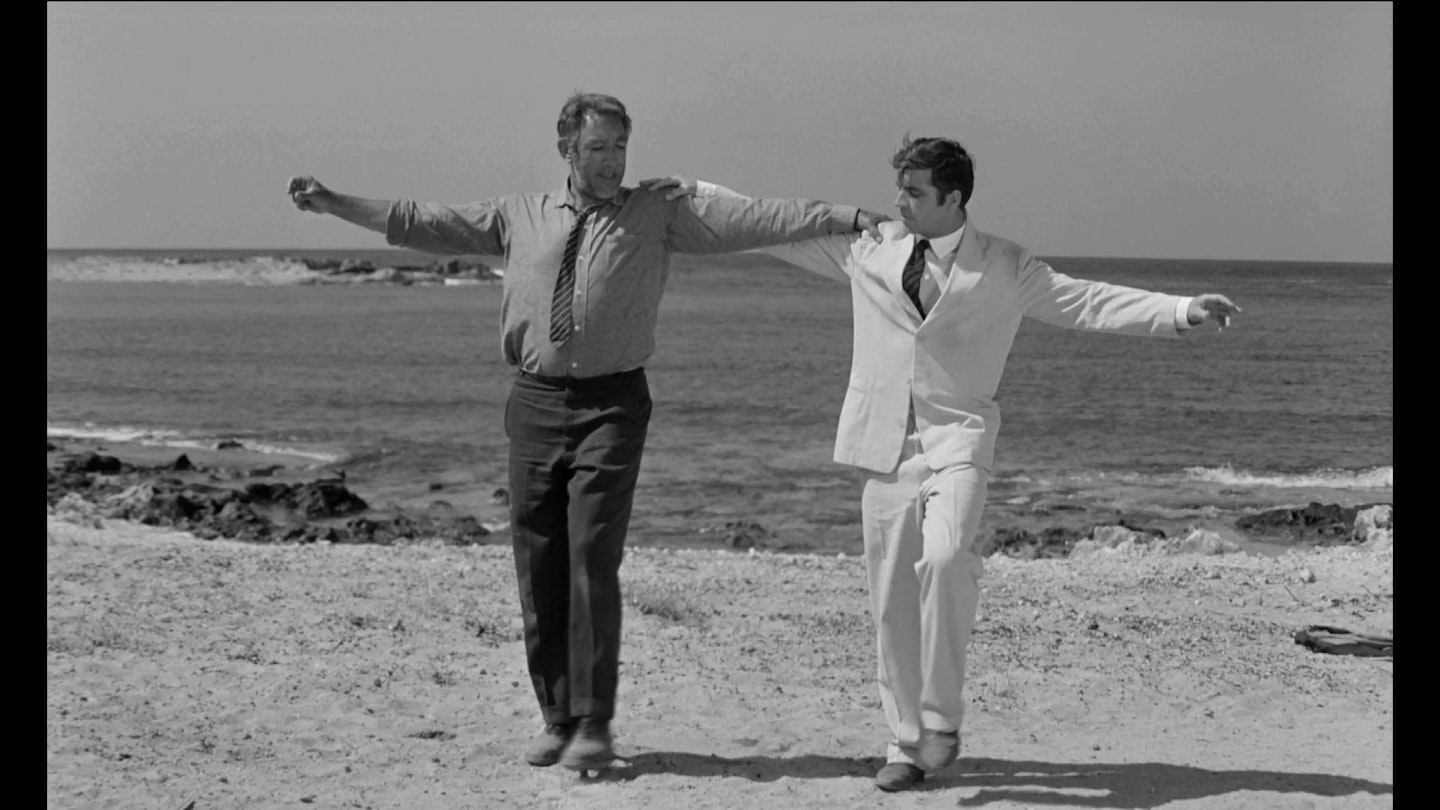Whether set in the ancient world of Electra or the modern environments of Stella, A Girl in Black and A Matter of Dignity, Michael Cacoyannis's best films had concentrated on the struggles of Greek women to survive the vissicitudes of a patriarchal society. But such concerns were largely relegated to the margins in this adaptation of Nikos Kazantzakis's bestselling novel, as Cacoyannis concentrated on the life-affirming friendship between Anthony Quinn's vulgar Greek peasant and Alan Bates's stiff English exile.
Yet, the real drama in this clumsy and occasionally leaden parable is to be found in the more melancholic experiences of Irene Papas's vilified widow and Lila Kedrova's pitiable French hooker, Madame Hortense.
Having spent the majority of his career playing a bewildering variety of ethnic types around Hollywood, Quinn finally found his alter ego in this dauntless opportunist, who treats every setback as the start of a new enterprise. Indeed, he even reprised the role in the short-lived Broadway musical, Zorba. But his tendency to overact frequently reduces his performance to caricature, as ironically, does Bates's resolute understatement.
Lila Kedrova, who was a late replacement for Simone Signoret, is equally culpable of striving too hard for effect. But her yearning for acceptance chimes in with Hortense's desperate need for respectability and genuine affection. However, the most affecting performance comes from Irene Papas, whose dignified reaction to both Bates's bashful attentions and the brutal consequences of their coupling alone approaches the sense of classical tragedy for which Cacoyannis consistently strives.
The film very much divided the critics, with those who applauded its vigorous embrace of life's pangs and pleasures being countered by others who denounced it as `a painfully slow piece of pseudo-art'. It's best known now for Mikis Theodorakis's infectious bazouki music. But the Oscar-winning photography of Walter Lassally, who had worked with Cacoyannis three times before, is even more impressive, as it captures both the rugged beauty of the landscape, while also suggesting its influence on the unforgiving morality of its impoverished inhabitants.
